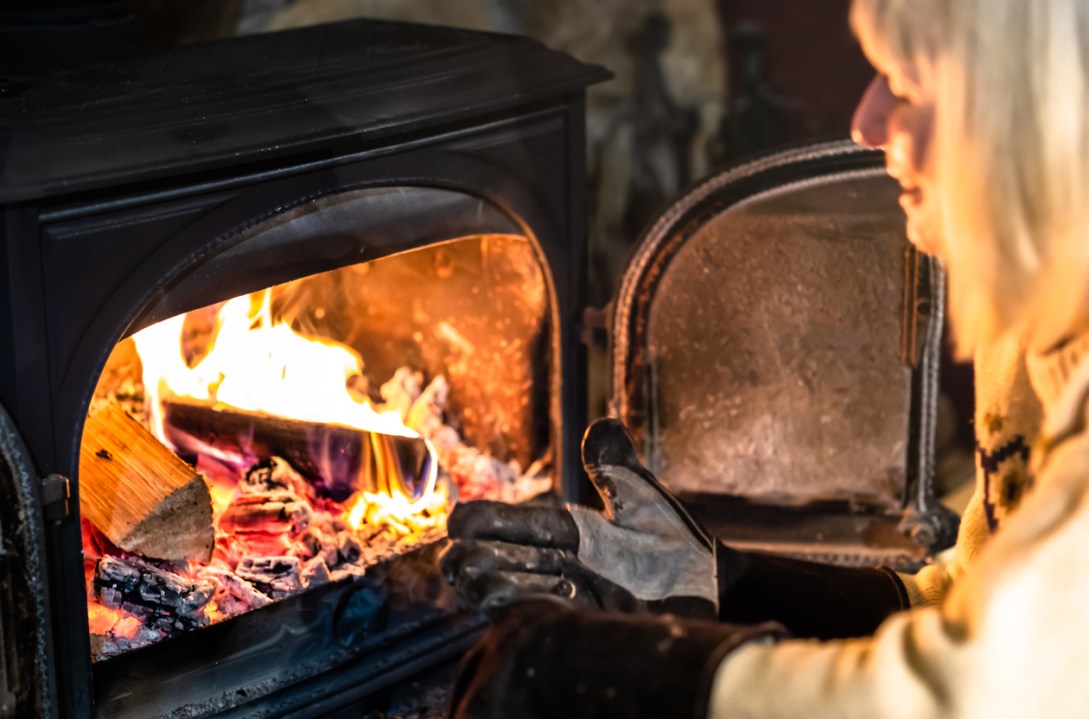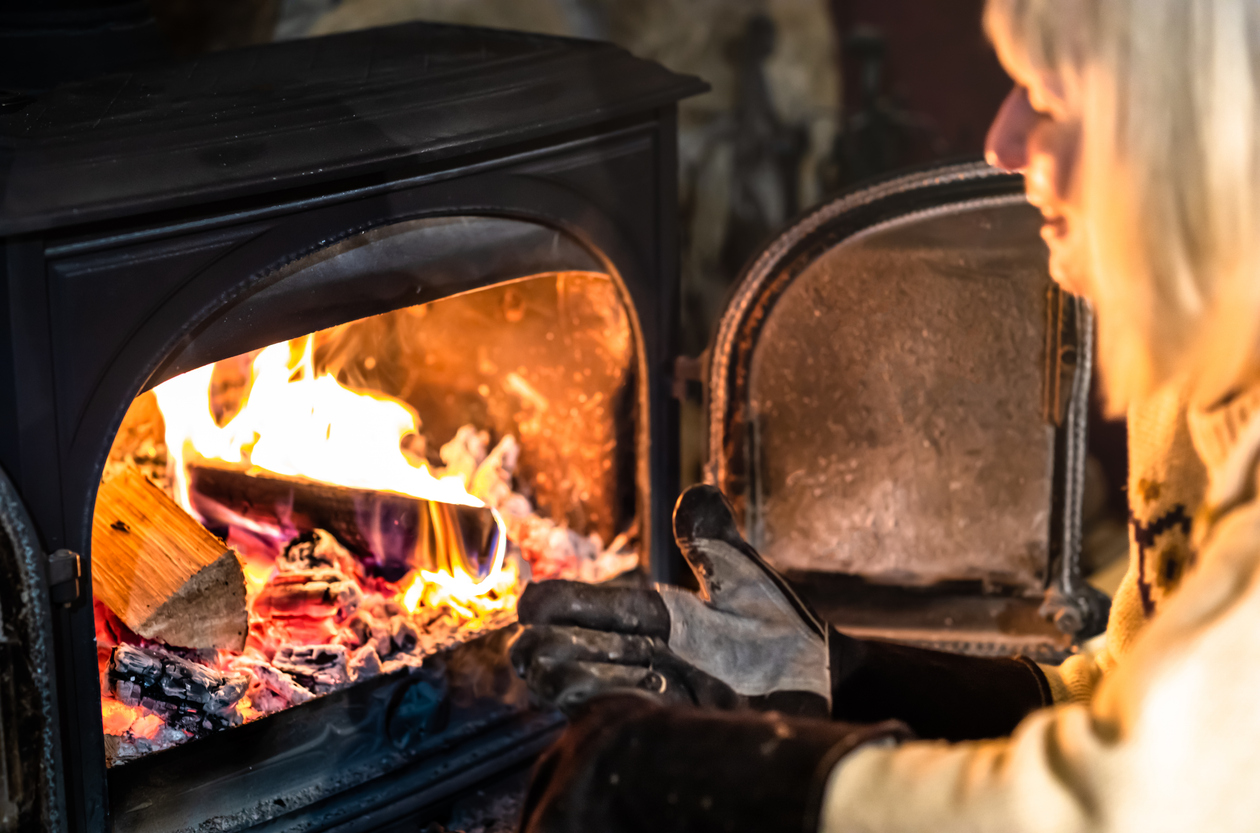Now that the clocks have gone back and the evenings draw in, those of us lucky enough to own a log burner start thinking about cranking it up. One of the few benefits of returning to GMT, as far as I’m concerned, is the chance to get primal – and have a real fire. Yet, as sure as eggs are eggs, this is also the time of year the media trots out scare stories about the supposed perils of wood stoves.
For example, articles have recently appeared in several papers about a report commissioned by the climate charity Global Action Plan and Hertfordshire County Council, which claims that wood-burning stoves and open fires are a significant source of ‘particulate matter’. These small pollution particles, we’re told, cause heart and lung disease and are responsible for 2,500 deaths a year, in addition to thousands of cases of diabetes and asthma. The report also claims that banning the burning of coal and wood could save the NHS £54 million a year.
Of course, pollution is a serious matter. I’ve got a family member with chronic asthma, so I’m mindful of its potential impact. But is restricting the use of log burners and real fires really going to make an appreciable difference – especially when weighed against both their practical benefits and the pleasure they give? According to Bupa, smoking still causes 78,000 deaths a year, despite the best efforts of successive governments. And the Royal College of Physicians estimates that pollution from all sources will cause 30,000 deaths in 2025. Seen in that context, coal and wood fires don’t appear to be such a public health menace.
It’s estimated that up to 2.6 million households in the UK have a wood burner. Yet the report, conducted by UK environmental consultancy Ricardo, suggests that 92 per cent of people burning wood in the UK already have another heating source for their homes. Really – central heating’s been standard in the UK since the 1980s. Of course most people use wood-burning stoves and fires for their aesthetic appeal and as an additional source of warmth. The report also states that the use of log burners has risen sharply in the past three years, particularly in urban areas, with many installations made for ‘lifestyle’ reasons. Which suggests owning one is whimsical. Leaving aside the fact that whimsy is central to modern consumer life, I’d argue that using a wood burner – responsibly – is wholly reasonable.
Central heating is entirely utilitarian. It functions with the minimum effort on our part – and goes almost unnoticed – until it breaks down. Fires, on the other hand, have an atavistic quality: they’ve been used for thousands of years, for both cooking and staying warm. Our ancestors also believed fires protected them from animals and spirits, and there’s something undeniably comforting about a fire on a cold, dark winter’s evening.
Ours isn’t our primary source of heat, although it does come in handy on the rare occasions temperatures slip below zero. So, yes, it’s a middle-class luxury, but staring into one suffuses you with a sense of wellbeing that’s entirely lost with modern heating. The preparation of a fire – adding a firelighter, some kindling and a log or two – is also key to the experience. ‘Ooh, look. It’s going really well!’ I say as I rub my hands with pleasure and do a little dance of triumph. There’s no satisfaction in turning up a thermostat.
I live in a smoke control area, meaning my local council in Bristol has introduced measures to reduce air pollution, which is laudable. For example, they’ve mandated that you must use a Defra-approved stove, a box I can happily say I tick. And you risk a fine of up to £300 for non-compliance. However, in 2024, the council issued a single fine of £175. Research found that 15,000 complaints were made to local authorities about wood burning in the past year – but only 24 fines were issued. Which rather suggests it’s not a high priority for them.
Before we go full East Germany and start banning things, can we not just enjoy one of life’s oldest pleasures?
There’s nothing morally dubious about a real fire: it’s a perfectly innocent pastime. I’m pretty sure no one thinks: ‘I know, I’ll chuck a few logs in the burner and wind up the neighbours.’ There may be ethical considerations around things like sustainability, but you can source wood responsibly. So I’m not trying to defend the indefensible or suggesting people be needlessly careless: ‘Go on, chuck on some MDF, it’ll be fine. Don’t worry about the toxins!’ Merely that a touch of common sense wouldn’t go amiss.
I don’t want to make light of respiratory diseases – and pollution is clearly something to be tackled – but, until recently, fires were the way most people heated their homes. And they’re only used seasonally and intermittently, whereas the 40-odd million vehicles on the road are belching out fumes 12 months of the year.
If the health and safety commissars decide that wood burners should be outlawed, it won’t be the end of the world for most of us – we’ll stay warm. But we’ll lose a sensory pleasure that helps relieve the gloom of the long winter months. And I’m not sure encouraging people to phone a snoopers’ hotline – ‘I’ve just smelt aromatic wood smoke, some bastard’s got their log burner going, pass me the phone!’ – is the way forward either. As the Stove Industry points out: ‘Precision-engineered, modern stoves are far removed from the smoky open fires of the past.’ Therefore, if we use traditional forms of heating with prudence, it will hopefully be something we can enjoy for a long time to come.
Visiting my paternal grandmother as a child, she’d almost be invisible behind a fug of cigarette smoke, as she puffed on Embassy No. 1s. In these more health-conscious times, no one thinks chain-smoking 60 fags a day is a good idea. But a cheeky cigarette after meals is probably well within the range of acceptable risk. Similarly, we’re all now aware of the threat posed by pollution, so before we go full East Germany and start banning things – or dobbing each other in at the first whiff of burning oak – I’d only ask that we be allowed to enjoy, with appropriate care, one of life’s oldest and simplest pleasures: a wood fire.








Comments